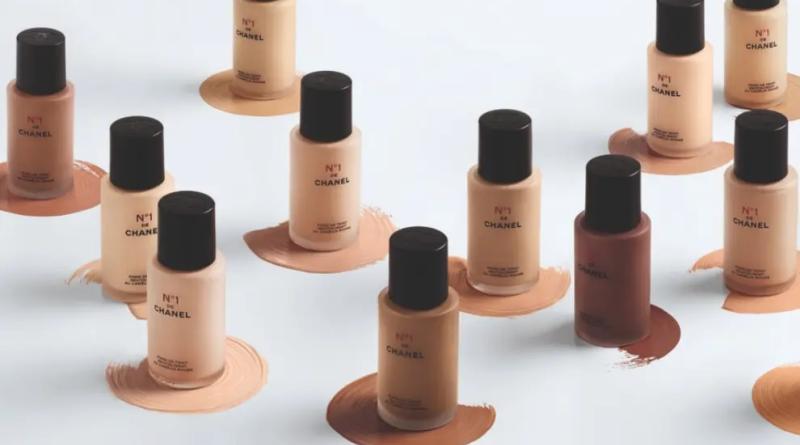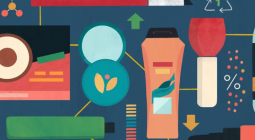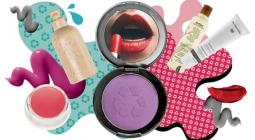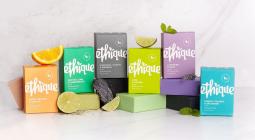How far have luxury brands come in terms of sustainable beauty?

As Chanel launches its first sustainable beauty range, Laura Hampson explores what other legacy brands are doing to help the environment
Chanel has officially launched its first sustainable beauty range, No.1 de Chanel.
The French fashion house’s new collection has been created with a circular focus in mind, with the brand claiming every aspect of the production process is eco-friendly. Natural ingredients make up 97 per cent of the formulations and 80 per cent of the packaging is made from recyclable glass.
Released this week, the range has been hailed by the century-old brand as a “new generation of beauty” and includes skincare, makeup and a fragrance mist. “At the heart of this new holistic, environmentally conscious, anti-ageing line is red camellia extract and its unique revitalising power,” a statement on Chanel’s website reads.
The new eco line includes a foaming cleanser (£42), a revitalising serum (£67), an eye cream (£58) and an illuminating foundation (£55) – the latter available in 20 shades – among other things.
The brand says the new beauty range aims to minimise its impact on the environment through its packaging, from the lids of its jars being made with 90 per cent bio-based materials, to using organic ink and replacing the classic paper leaflet with a QR code printed directly onto the packaging instead.
The red camellia flower is pivotal to the No. 1 de Chanel range as it is this newly discovered extract that offers anti-ageing properties. The seed shells of the flower are repurposed in the packaging, too.
The launch is certainly a good start for a brand so embedded in an industry that has long had a sustainability problem. Zero Waste Europe estimates that 120 billion units of packaging are created each year for beauty products and the LCA Centre has also found that if beauty products used refillable containers, nearly 70 per cent of carbon emissions caused by the cosmetics industry could be eliminated.
While sustainability is now at the forefront of a new beauty brand’s mind – just look at Harry Styles’s Pleasing, which launched last year with vegan, cruelty-free and ethically sourced products – it’s an area that legacy brands such as Chanel have just started to branch into.
In 2020, Hermès launched Rouge Hermès, a collection of 14 satin and 10 matt lipsticks with the tubes made mostly from materials such as metal, and plastic limited to “essential elements”. What’s more is these lipsticks are endlessly refillable, as the bullet can be replaced once you’ve finished the initial lipstick – and for nearly half the price. It’s £58 to buy a Rouge Hermès lipstick but just £33 to buy the refill. A year later, Hermès dropped the Rose Hermès Silky Blush range, which is also refillable once the initial blush runs out.
Yves Saint Laurent (YSL) has also bolstered its sustainability practices in recent years. In 2013, YSL Beauty created its Ourika Gardens. Located in Morocco’s Atlas mountains, it is a collaboration between the brand, dry landscape designers and a cooperative of 32 local women. The botanicals grown here, in pollution-free soil and by using organic farming methods, are infused into YSL products which are wrapped in reusable, refillable, recyclable or compostable packaging. The local women who work on the project have doubled their income in the ensuing years, YSL reports.
Cult skincare brand La Mer launched its Blue Heart Oceans Fund in 2017 which uses charitable donations to work on a number of projects including coastal restoration, and it teamed up with EarthEcho International to launch the Future in the Bag campaign to cut the use of plastic bags.
These moves towards a greener practice come as a study published last year found that more than half of consumers (54 per cent) consider sustainability to be a factor when buying beauty products. The poll of 2,000 adults by Wella’s weDo/ Professional found that 56 per cent of people believe recyclable packaging is important and 44 per cent want to purchase beauty products which are cruelty-free.
In September last year, brands such as LVMH (Sephora, Dior), Henkel (Schwarzkopf), L’Oréal, Unilever (Dove) and Natura & Co (The Body Shop) announced they would collaborate in order to co-develop an environmental impact assessment and scoring system for beauty products. This will allow shoppers to compare and contrast the sustainability credentials of big brands more easily.
With Chanel, YSL, Hermès and La Mer all taking steps towards sustainable beauty, it gives the industry a little bit more hope that this practice will one day be the norm.
cover photo:
The French fashion house is aiming to make its production process more eco-friendly





